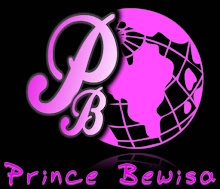
ONE would often observe that whenever we want to open a new bank account with any bank, one of the forms which we are asked to fill is called ‘KYC’ form.
What does this acronym ‘KYC’ mean to a normal human being? The expanded form of ‘KYC’ is nothing but it stands for - “Know Your Customer”. This famous acronym i.e. ‘KYC’ is very popular in the banking/ financial industry across the world.
“Know your customer (KYC)” is the due diligence that banks/ financial institutions and other regulated companies must perform to identify their clients and ascertain relevant information pertinent to doing financial business with them.
‘Know your customer (KYC)’ policies are becoming increasingly important globally to prevent/ identify transactions relating to theft, fraud, money laundering and terrorist financing etc.
Howsoever influential one might be no bank of professional standing will open an account until that customer passes the mandatory ‘KYC’ guidelines/ procedures.
That being the practice in financial sector, don’t you feel that it is equally obligatory on the part of any depositor or investor to also know the corresponding bank/ investment company where one is intending to put his/ her hard earned money.
This is where I introduce you to an altogether new terminology/ acronym i.e. ‘KYB - Know Your Banker’, which basically connotes that as ‘KYC’ is for a bank or investment company, ‘KYB’ is for a customer.
So if it is mandatory for a customer to undergo KYC compliance procedures to open a bank account or make investments, are we not supposed to apply the same yardstick when we decide to transact with any bank or investment company.
This is where a common investor normally makes a miss. One would go to any extent to comply with the mandatory ‘KYC’ guidelines when required, while on other hand the same person would pay very little attention to know about the bank or investment company where he/she intends to put one’s hard earned money for investment purpose.
Please note, your first and foremost concern as an investor should be the safety of money you intend to deposit or invest. In order to address this concern one has to take some pain by following the dictum of our today’s message i.e. ‘Know Your Banker/ Investment Company’.
Though the moot question remains, as to how one can know about its Banker or Investment Company? There are many ways through which one can collect some basic information/ data to know one’s banker/ Investment Company well.
While doing ‘KYB’, the first things you must ensure is that the financial entity (whether it is a bank, finance company, chit fund or any other concern of similar nature) is duly registered and has a clear cut mandate/ licence to undertake the type of business currently being operated.
Once that financial entity (under review) has passed the 1st litmus test of being found duly registered, the very next thing one must find out is about its track record. One of the best ways through which one can easily find out the track record of any entity is by seeking/ analyzing audited financial accounts of that entity for a period of about 3-5 years.
While doing so, you may even take the help of some financial analyst, accountant or stock broker. Another important thing one must ensure is to clearly understand the terms and conditions that govern the investment plan you intend to join.
 The normal practice is to just sign on the dotted lines, without being clear on many important key parameters. You may decide to put money under ‘fixed deposit’ with a bank for five years without even knowing whether there is any window available to you in case the money is needed before maturity (i.e. before 5 years).
The normal practice is to just sign on the dotted lines, without being clear on many important key parameters. You may decide to put money under ‘fixed deposit’ with a bank for five years without even knowing whether there is any window available to you in case the money is needed before maturity (i.e. before 5 years).If yes, then what conditions would apply in case you decide to break the fixed deposit after completion of 3 years. There could be many permutation and combinations of similar nature relating to one’s investment placed with various financial entities.
There are numerous instances where an investor had joined a savings/ investment plan based on misguided advice received from some greedy financial adviser or agent, which later on turned out to be completely not in sink with one’s investment profile.
But by the time one discovers such unwanted clause, it is too late for correction. So the best time to do the necessary due diligence is when you are investing at the first instance.
For security, and peace of mind, you should be interested only in dealing with the safest Bank or Investment Company, which enjoys highest quality of financials, coupled with the lowest risk and has a steady track record.
Thus from hereon please make ‘KYB - Know Your Banker’ as one of your integral investment mantra, and I am sure by doing so you would avoid unnecessary miseries that may befall on your hard earned money in the times to come.
Cheers and happy investing!!!


